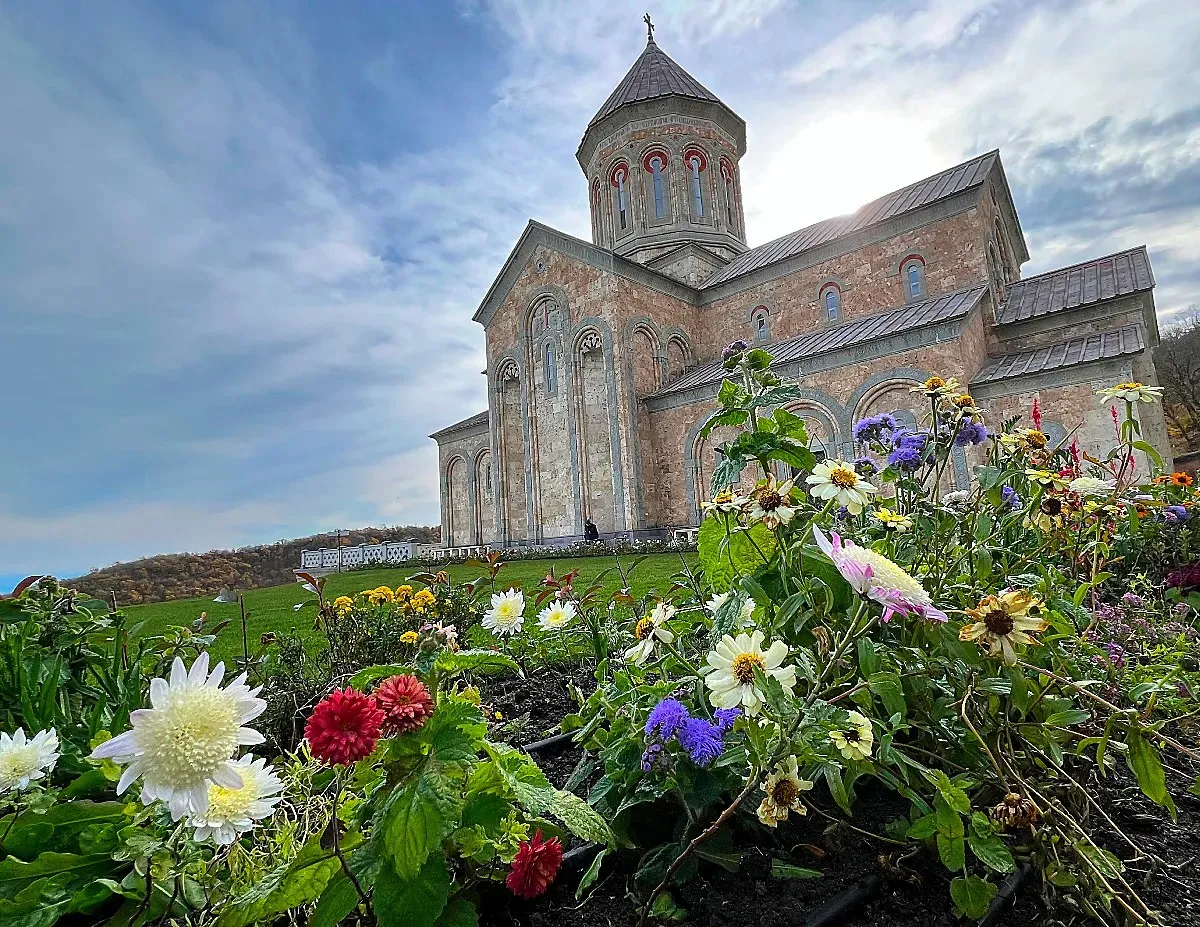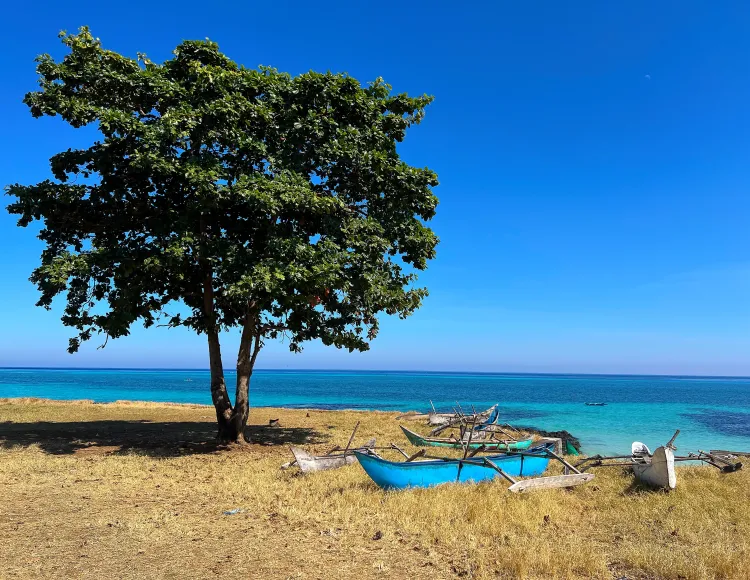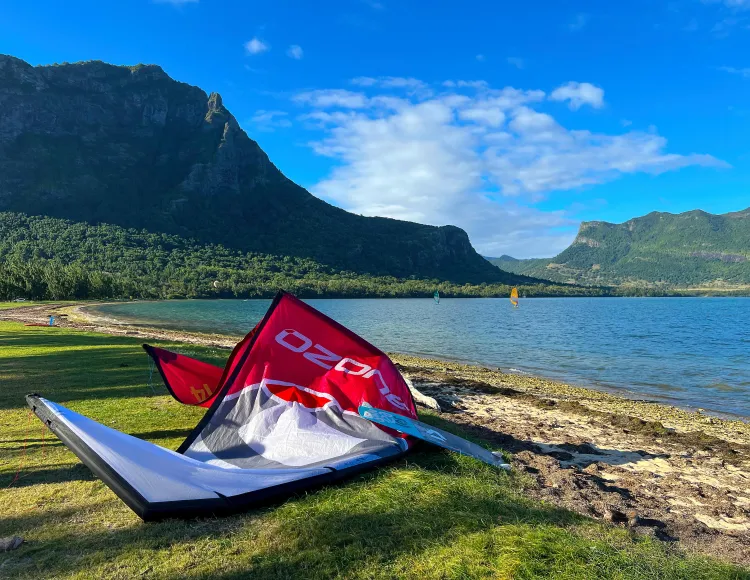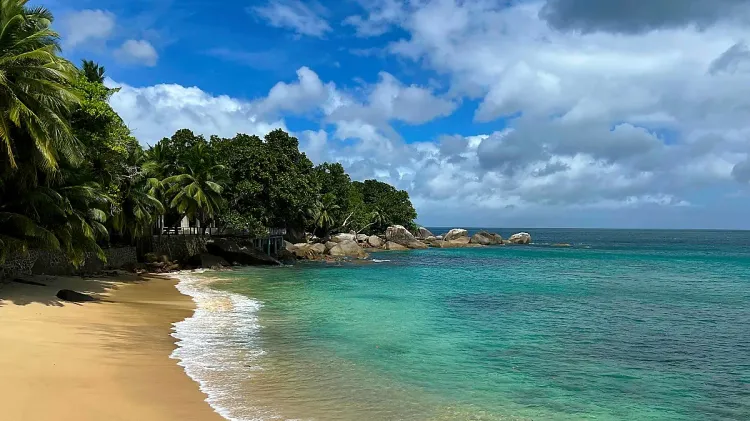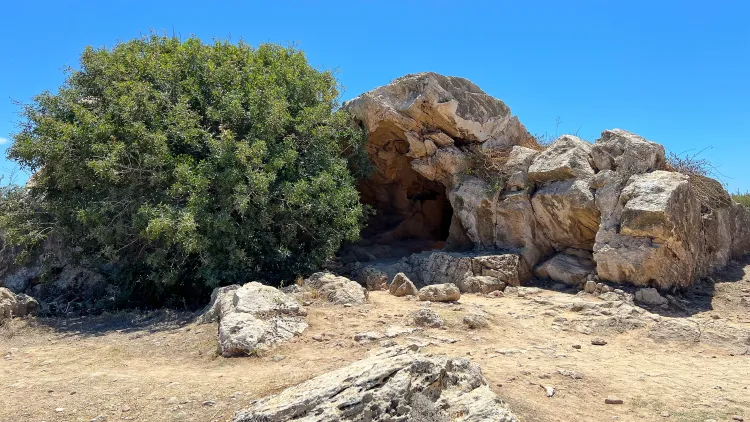Journal #40 - Georgia

Gamarjoba (გამარჯობა) from Georgia!
Our visit consisted of fresh-baked bread, warm hospitality, a bread-baking lesson, beautiful vistas, bread with cheese, and some wine tours that included bread tastings. This little nation truly surprised us and we had a marvelous time running around taking in as much as we could. We spent a couple of days on excursions outside of the capital city, Tbilisi, which we called home for the duration of our stay.
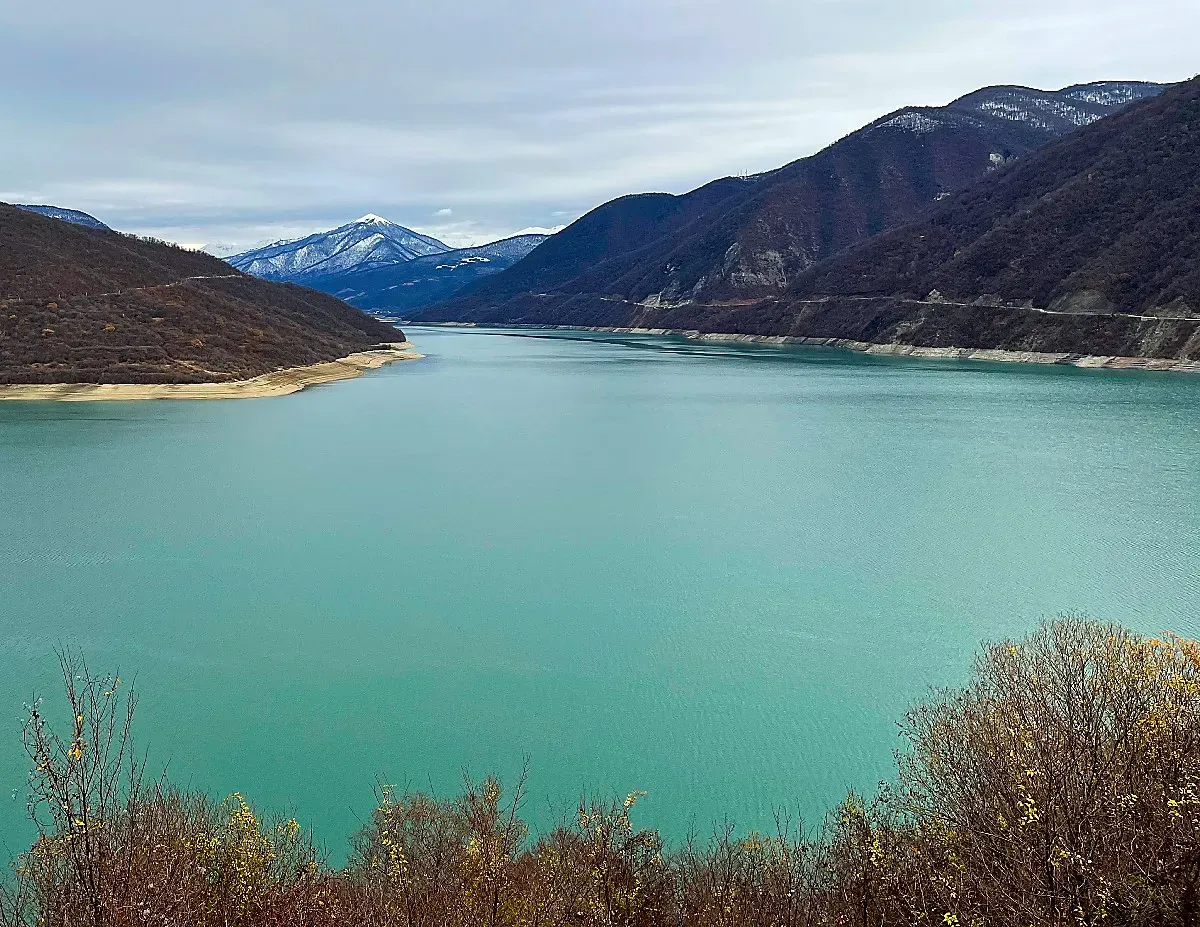
One of our excursions showed us the northern side of the country. We traveled to the Jinvali Water Reservoir to take in the aqua water, despite the surroundings suiting themselves much more to a black loch-colored setting. This is a specific memory for us. On the day we traveled here, it was freezing outside and only got colder as we ascended into the mountains. When we began at the reservoir, there were only flurries in the air; but, by the time we had reached the Russian Georgian Friendship Monument, the snow was coming down in such a surge that we lost sight of the monument from the road.
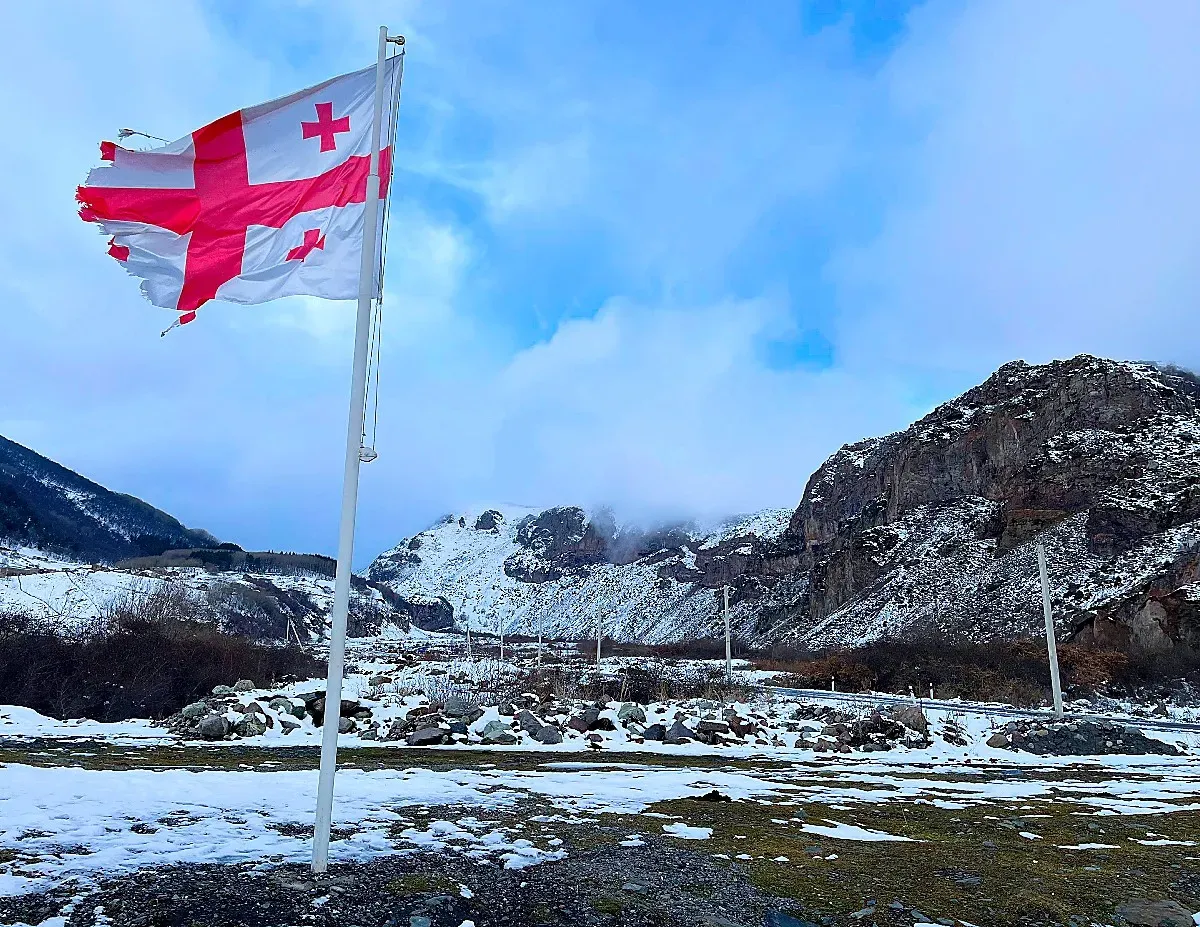
All of this makes sense, and even seems par for the course if you plan to travel to Georgia in November; however, one thing that we did not do was prepare. We arrived on this visit wearing a rain jacket. Our fellow tourists were bundled in puffy coats, hats, gloves, and the like. We, on the other hand, were lucky to have remembered to wear close-toed shoes that morning. To say we were chilly would be an understatement; however, our popsicle status did not take away from the experience and we delighted in everything we were able to see including the Ananuri Fortress and Gergeti Trinity Church along the way.
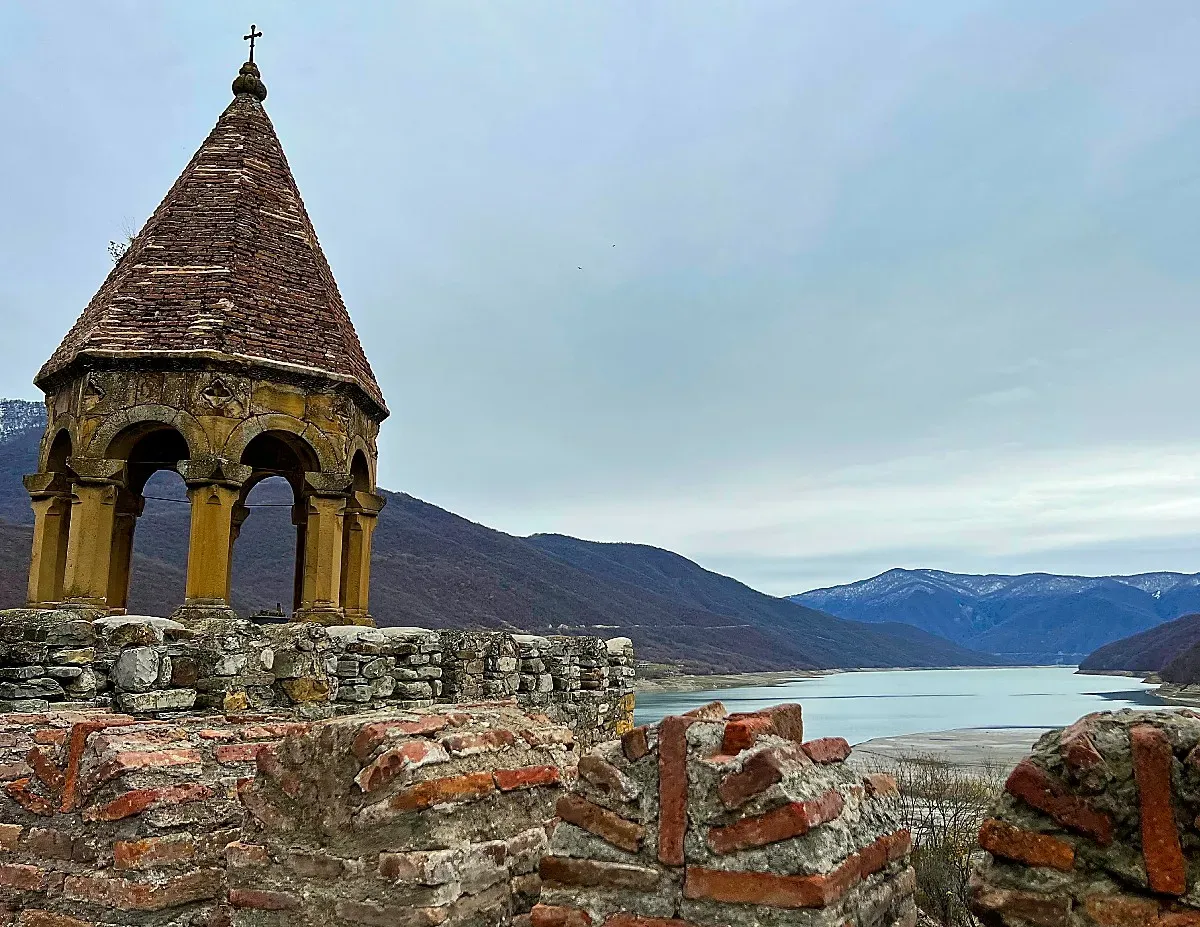
Upon our return to the city, we quickly made it our mission to acquire coats. This left us much better prepared for our treks around to the top of the Tbilisi Funicular, all up and down the Kura River, and through our visits to several wineries outside of the city.
We used a tour group to help us visit several different wineries on the same day and this package involved stopping at a local Georgian baker’s to see how they make traditional Georgian bread. The lady of the house explained her daily routine, and we got to watch her expert hands mold the boat-shaped loaves and adhere the dough to the side of her oven. She pulled each one out right when it was perfectly baked and it was a mouthwatering experience to dine on hot-out-of-the-oven bread with their farm’s local sheep and cow cheeses. Everything melted in your mouth.
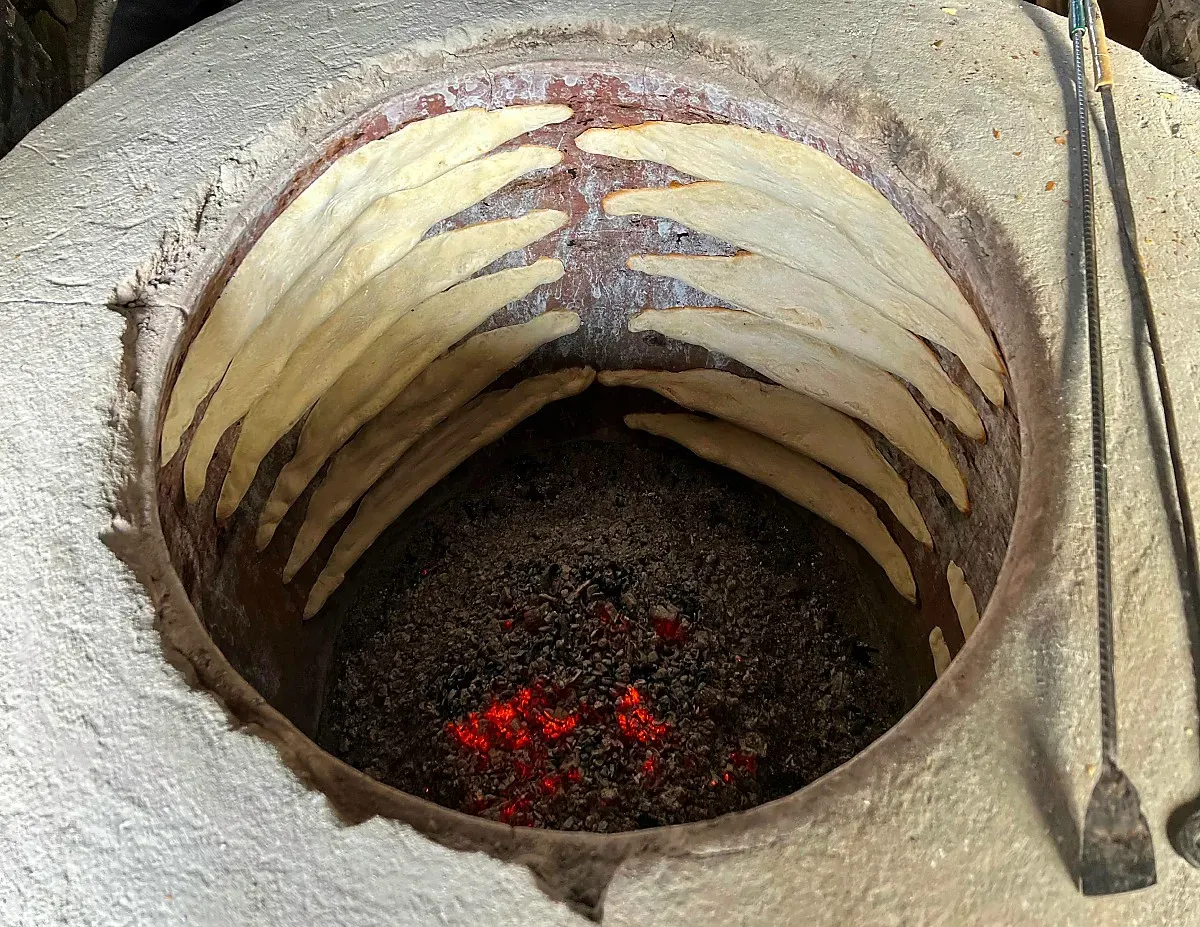
Taking a wine tour here was important to us because Georgia is said to be the birthplace of wine. While most Western nations utilize modern technology with steel barrels and temperature control to regulate fermentation the Georgians still hold to their ancient techniques. Their process involves combining the harvested grapes (skins and all) in clay jars (qvevri) and burying them in the earth. With this method, many Georgian families can produce enough wine for their households each year.
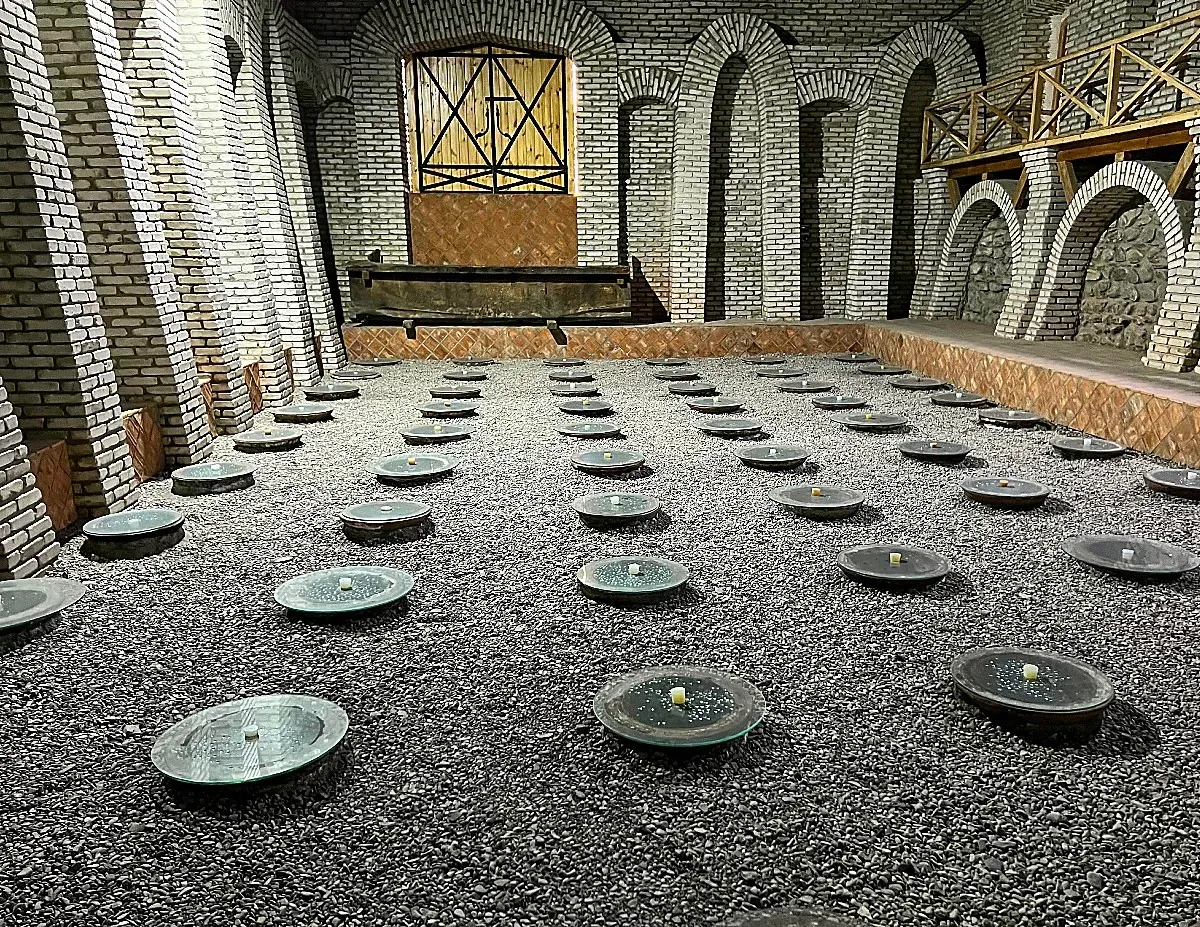
We had the opportunity to see small families who did this – complete with anecdotes from our guide about how normalized wine consumption is in Georgia. He even told us a story of his grandfather, not wanting to drink alone, sharing the wine with our guide...who was three years old at the time. Making and sharing wine is an important part of the Georgian experience so it was a pleasure to also get to see some of the major productions (including one of the largest exporters) share how they can produce their wine the traditional Georgian way.
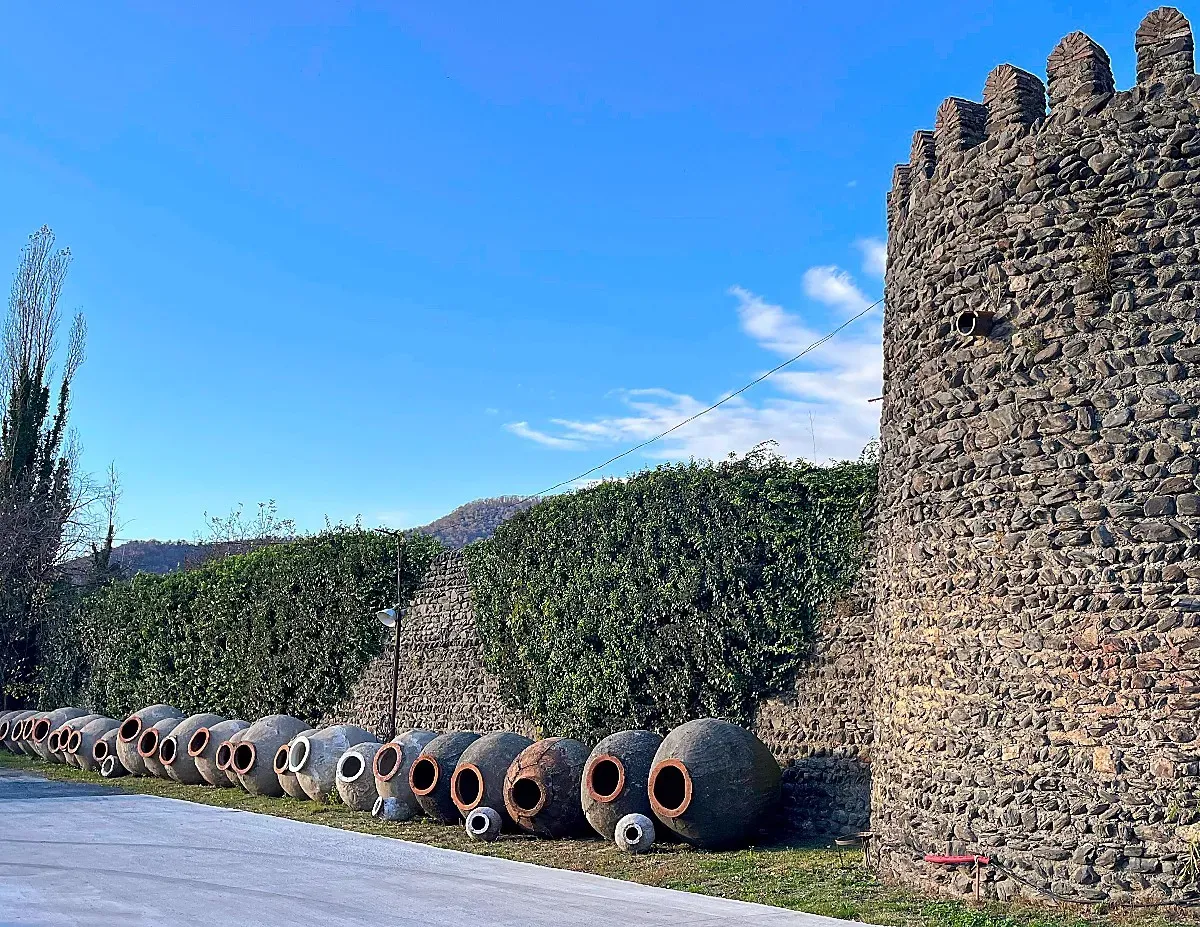
You cannot possibly appreciate a visit to Georgia though without consuming not just their wine, but also their food. Georgian cuisine is, as we joked to ourselves, bread with a side of bread. Between the multiple Khachapuri varieties, Kubdari, Lobiani, and Lavash you could order a whole meal consisting of just bread and bread-based dishes. If that is not well-rounded enough for you, then the other major ingredient we found in Georgian cuisine was their walnuts.
When we asked a guide why so many dishes have walnut paste in them he replied that he had asked his grandmother that very same question. He shared that her response was “Because everything is better with walnut paste”. The man nodded as he relayed this as if that explanation alone was enough to justify the ingredient’s presence in soup, bread dishes, fish, sauces, honeyed candy, and more.
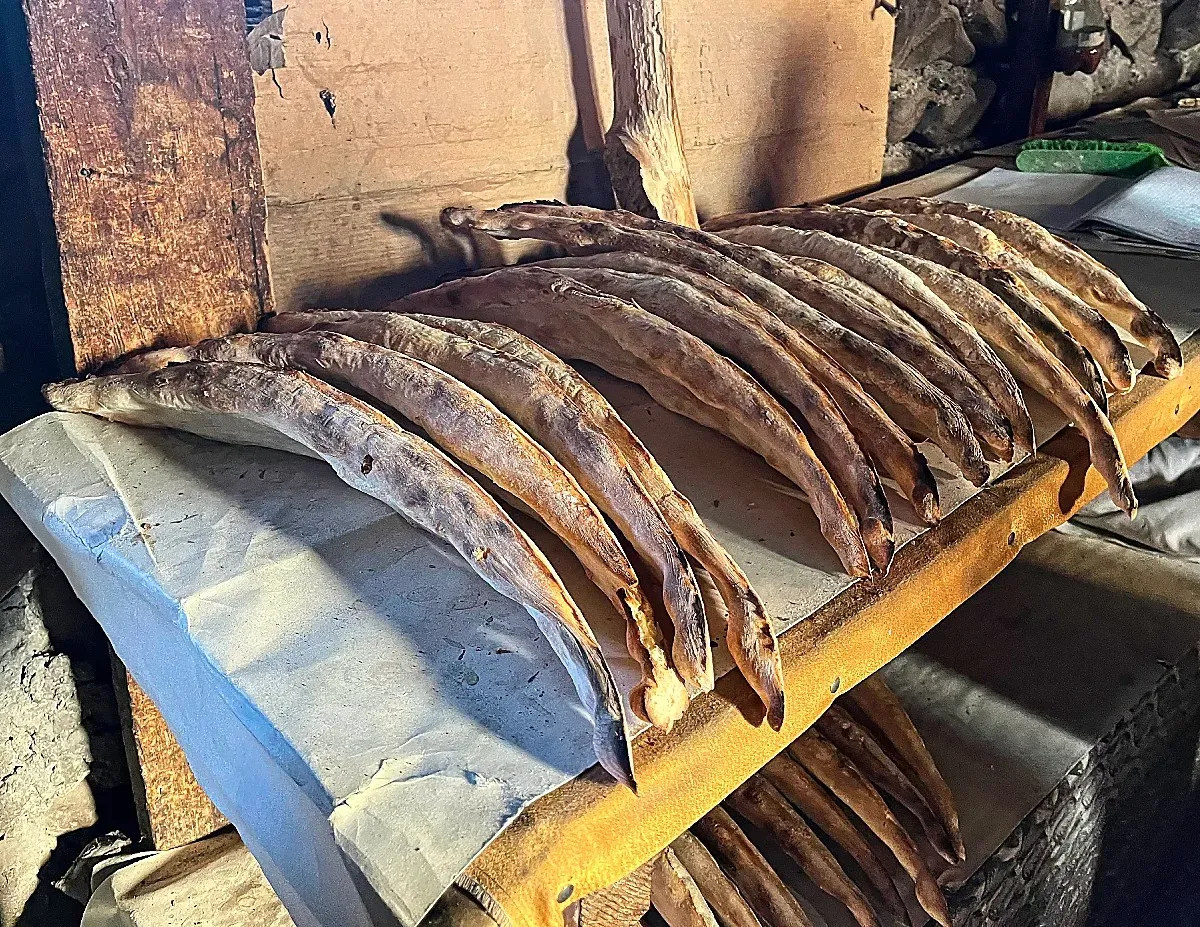
We have thoroughly enjoyed our time here and will stop by any Georgian restaurants we can find along the road to recapture the delicious time we had here. Until then, our bags are packed and we took a night train to the first nation in the world to make chess mandatory in its schools. Any guesses where we are off to next?
